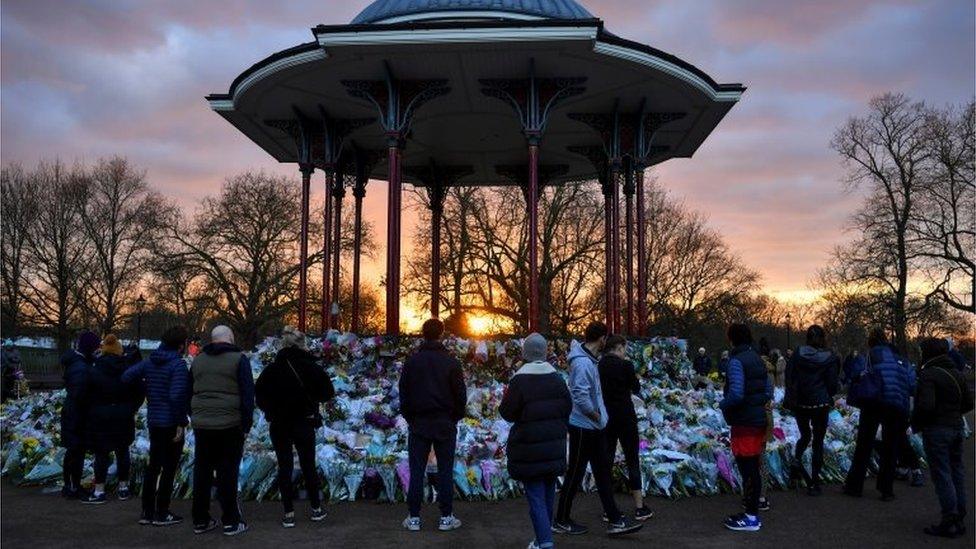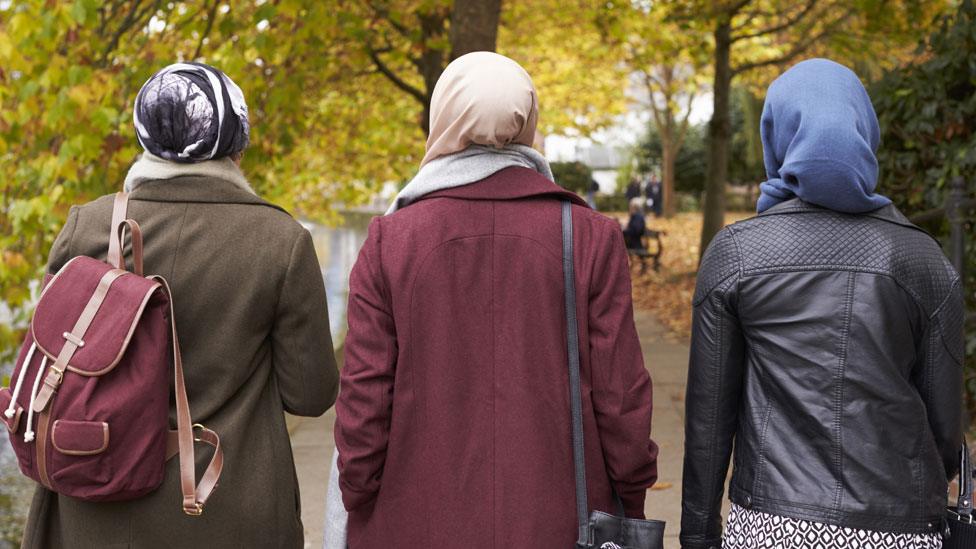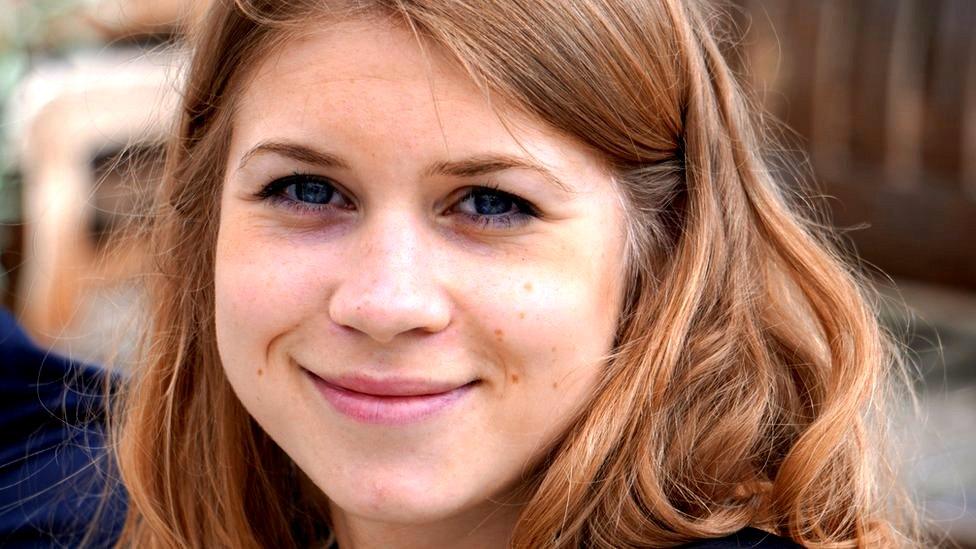Police to record crimes motivated by sex or gender on 'experimental basis'
- Published

The death of Sarah Everard has triggered conversations about women's safety
The government has said it will "on an experimental basis" ask the police to record crimes of violence motivated by a person's sex or gender.
The announcement is a concession to campaigners who have been calling for misogyny to be made a hate crime.
Women's groups have argued this would help provide "critical data" on violence against women and girls.
The Law Commission has carried out a review of hate crime legislation.
It is expected to make its official recommendations to the government in 2021.
Home Office Minister Baroness Williams said the change would "inform longer term decisions" while the government awaited the outcome of the commission's review.
The Labour MP Stella Creasy said it represented "success" for those who'd been campaigning on the issue, adding that changes to legislation were needed to make sure such crimes could be prosecuted.
Allow X content?
This article contains content provided by X. We ask for your permission before anything is loaded, as they may be using cookies and other technologies. You may want to read X’s cookie policy, external and privacy policy, external before accepting. To view this content choose ‘accept and continue’.
A hate crime is deemed to have been committed when someone is assaulted or harassed because of their race, religion, sexual orientation, disability or transgender identity.
Seven police forces in England and Wales have already introduced their own misogyny hate crime policy - including Nottinghamshire Police.
An evaluation of the policy in Nottinghamshire said the move had led to "shifting attitudes as a result".
However others have urged caution including minister Victoria Atkins who said in 2018 that: "Women are not a minority, and I would be hesitant to put us forward as one."
Speaking in the House of Lords, Home Office Minister Baroness Williams said "On an experimental basis we will ask police forces to record and identify any crimes of violence against the person including stalking and harassment, and sexual offences where the victim perceives it to have been motivated by a hostility based on their sex".
She said data collection would "help us find solutions" to the problem of violence against women and girls.
However she added it was important "to ensure the law itself is coherent".
Responding to the announcement, Fawcett Society chief executive Felicia Willow said: "This is a major step forward in changing how we understand, address and prevent violence against women - and one that we hope will help change attitudes towards women."
The Scottish government has recently passed a hate crime law which extends protection for vulnerable groups, but an amendment that would have included women as a protected group was defeated.
The government in Edinburgh has instead set up a working group to look at whether misogynistic abuse should be a separate crime.
Related topics
- Published23 September 2020

- Published15 October 2019

- Published30 June 2022
